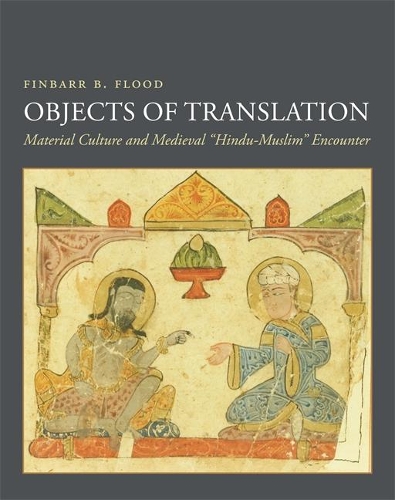
Objects of Translation: Material Culture and Medieval "Hindu-Muslim" Encounter
(Paperback)
Publishing Details
Objects of Translation: Material Culture and Medieval "Hindu-Muslim" Encounter
By (Author) Finbarr Barry Flood
Princeton University Press
Princeton University Press
29th May 2018
United States
Classifications
Tertiary Education
Non Fiction
History of architecture
Social groups: religious groups and communities
709.5
Physical Properties
Paperback
384
Width 203mm, Height 254mm
Description
Objects of Translation offers a nuanced approach to the entanglements of medieval elites in the regions that today comprise Afghanistan, Pakistan, and north India. The book--which ranges in time from the early eighth to the early thirteenth centuries--challenges existing narratives that cast the period as one of enduring hostility between monolithi
Reviews
"Winner of the 2011 Ananda Kentish Coomaraswamy Book Prize, Association for Asian Studies, South Asia Council"
"One of Choice's Outstanding Academic Titles for 2009"
"This brilliant book does many things well, but two stand out. It is an overview of the art, especially architecture and architectural decoration, of what is now northern India, Pakistan, and Afghanistan from the eighth to the thirteenth centuries--from the arrival of Islam to the eve of the Mongol conquests. It is also a trenchant essay of interpretation, substituting a richly textured consideration of cultural dynamics and cultural change on a theoretical level for the traditional dichotomy of Hindu versus Muslim. . . . Nothing is comparable to this deeply learned, engrossing, and well-written albeit often challenging work, which is full of compelling discussions of important monuments. It deserves a wide readership."---L. Nees, Choice
"[A] brilliant, far-ranging study. . . . This book is essential reading for anyone who seeks to understand the medieval 'Hindu-Muslim' encounter."---John E. Cort, Religious Studies Review
"Flood's is an outstanding book and its level of scholarship is far in excess of any other work on medieval Indian history that I am aware of. It is a book that gladdens one's heart as much as it enriches one's mind."---Harbans Mukhia, Medieval History Journal
"This book will not only be of interest to scholars of material culture, art and architectural history, religion, and medieval history, but is also entirely relevant to scholars of modern South Asia. In its insistence on mobility--of objects, people, and ideas--and resistance to boundaries, Flood's book is a timely reminder that global mobility is hardly a new phenomenon."---Preeti Chopra, Contemporary South Asia
"This book is a most welcomed addition to the still meager though growing number of studies in Islamic art and material culture, which are based on theoretical premises and on a close, comparative scrutiny of multiple visual objects and texts. . . . [D]ue to its rich material and novel ideas, this book is a necessary asset in the library of historians and art historians of the Muslim world and India, and a useful text-book in academic teaching, hard to read but fully rewarding."---Rachel Milstein, Jerusalem Studies in Arabic and Islam
Author Bio
Finbarr Barry Flood is the William R. Kenan, Jr., Professor of the Humanities in the Department of Art History and the Institute of Fine Arts, and founder-director of Silsila: Center for Material Histories at New York University. His books include Piety and Politics in the Early Indian Mosque and The Great Mosque of Damascus.
